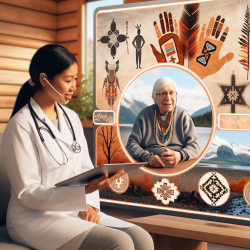Introduction
The global landscape of nutrition is undergoing a significant transformation, characterized by the increasing prevalence of ultra-processed foods and the associated rise in obesity and noncommunicable diseases (NCDs). However, this transition is not an inevitable fate. Recent research by Popkin and Ng (2022) highlights that with strategic interventions and policy changes, the tide can be turned towards healthier dietary practices. This blog explores the implications of their findings and offers insights for practitioners aiming to improve their skills and contribute to healthier communities.
The Nutrition Transition: An Overview
The concept of the nutrition transition describes the shift from traditional diets to those dominated by processed and ultra-processed foods. This transition is often accompanied by a rise in obesity, type 2 diabetes, and hypertension, particularly in high-income countries. However, many low- and middle-income countries are also experiencing rapid increases in the consumption of ultra-processed foods, leading to a dual burden of malnutrition—where obesity and undernutrition coexist.
Key Findings from the Research
Popkin and Ng (2022) emphasize that the widespread consumption of ultra-processed foods is not an unavoidable outcome. They suggest that with robust political and civil society commitment, countries can implement policies that have been successful elsewhere in improving dietary choices and altering social norms around food. Key strategies include:
- Implementing front-of-package labeling to inform consumers about the nutritional quality of foods.
- Introducing taxes on sugary drinks and ultra-processed foods to discourage their consumption.
- Promoting the consumption of whole, minimally processed foods through subsidies and educational campaigns.
Practical Implications for Practitioners
For practitioners, understanding the dynamics of the nutrition transition is crucial in developing effective interventions. Here are some actionable steps to consider:
- Advocate for Policy Change: Engage with policymakers to support the implementation of evidence-based policies that promote healthier eating habits.
- Educate Communities: Develop educational programs that raise awareness about the health risks associated with ultra-processed foods and the benefits of a balanced diet.
- Collaborate with Stakeholders: Work with schools, community organizations, and healthcare providers to create a supportive environment for healthy eating.
- Encourage Further Research: Stay informed about the latest research on nutrition and public health to continually refine and improve intervention strategies.
Encouraging Further Research
While the research by Popkin and Ng provides a solid foundation, there is a need for ongoing research to explore the nuances of the nutrition transition across different populations and contexts. Practitioners are encouraged to engage in or support research efforts that investigate the effectiveness of various interventions and policies in diverse settings.
Conclusion
The nutrition transition poses significant challenges to global health, but it also presents opportunities for meaningful change. By leveraging research insights and advocating for policy reforms, practitioners can play a pivotal role in steering communities towards healthier dietary practices. For those interested in delving deeper into the research, the original paper by Popkin and Ng offers a comprehensive analysis of the nutrition transition and its implications.
To read the original research paper, please follow this link: The nutrition transition to a stage of high obesity and noncommunicable disease prevalence dominated by ultra-processed foods is not inevitable.










